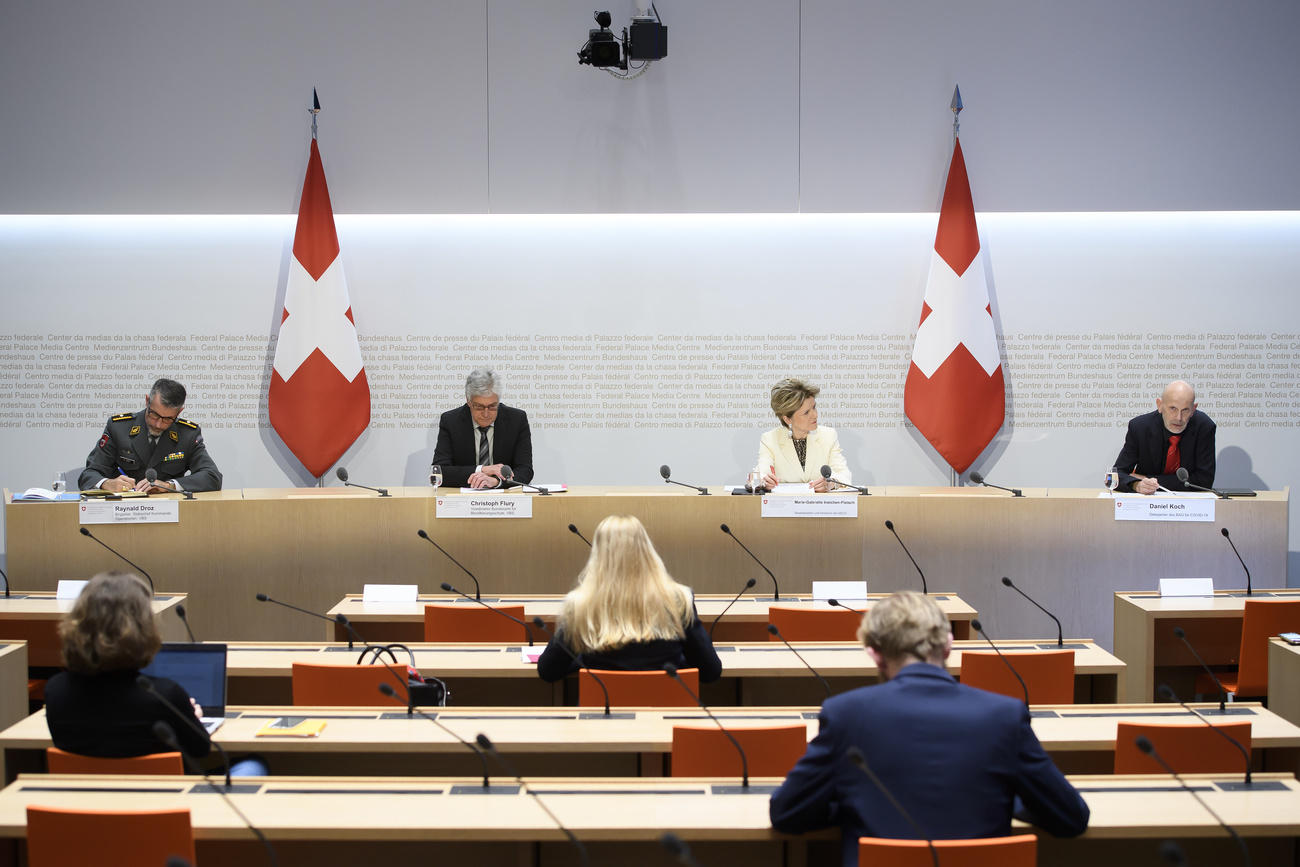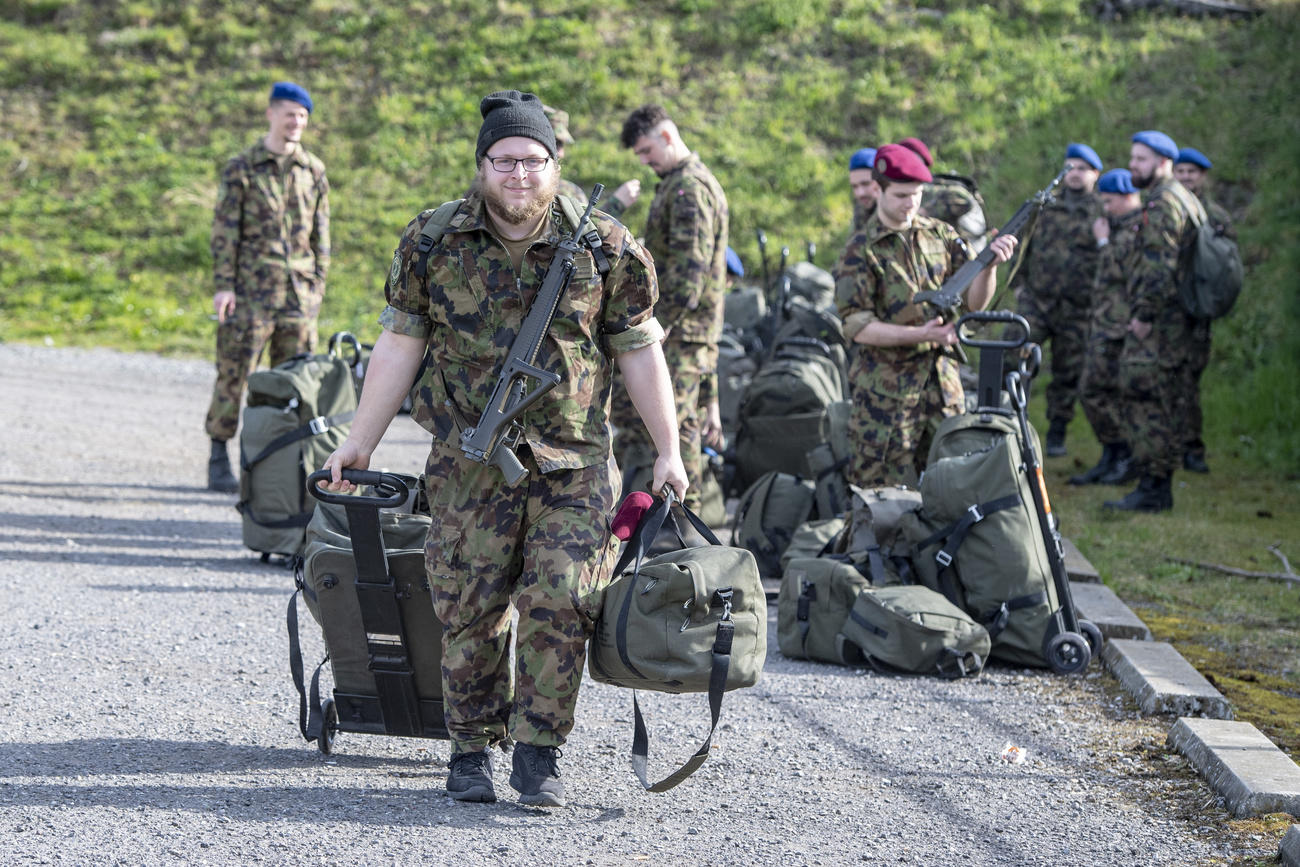
Too early to relax coronavirus measures, says top health official

The peak of coronavirus infections has not yet been reached in Switzerland and it is far too early to relax restrictions, says top public health official Daniel Koch. Meanwhile nearly a quarter of the population is on short time work.
Koch, who is head of communicable diseases at the Federal Office of Public Health (FOPH), reminded people at a press conference on Saturday that the government measures were aimed at flattening the curve of infections and protecting vulnerable groups, notably people over 65 and/ or with existing health problems. “These are the people who put a strain on our hospitals and the health system and who have to fear for their lives,” said Koch.
He stressed that it is “everyone’s responsibility” to protect the vulnerable”, urging people to “stay home” this weekend and only go out “alone for a short walk” or exercise in the garden.
The number of Covid-19 infections detected in Switzerland has now climbed to some 20,000, while the number of deaths is over 600. The number of people under artificial respiration on Saturday was 435, according to Koch.
He said the age range of the deceased was 32 to 101 years, and the average age was 83. Only 6 percent of them were under 65 years old. 97 percent of the dead had suffered from at least one previous illness, with the three most frequently mentioned being high blood pressure (69 percent), cardiovascular diseases (55 percent) and diabetes (29 percent).
The total number of coronavirus tests carried out to date is around 153,440, of which the result was positive in 15 percent of cases, according to the FOPH.
Short time working
Almost a quarter of the Swiss working population (1.3 million people) is on short-time work, Director of the State Secretariat for Economic Affairs (SECO) Marie-Gabrielle Ineichen-Fleisch told the press conference on Saturday. In the southern canton of Ticino, where around 8,000 applications for short-time work are submitted every week, the rate is as high as 40%, she said.
Despite government measures including CHF60 billion in economic aid, she reiterated that the Swiss economy will not emerge from the crisis without damage. For the authorities, the important thing for the time being is to ensure the salaries of employees and to avoid business bankruptcies. It is very difficult to say today how and when the recovery will take place, she admitted.
The authorities are preparing for a way out of the crisis, with SECO and the Federal Office of Public Health (FOPH) studying various scenarios. SECO is monitoring the situation closely, she said, citing the example of a teleconference she had this week with the tourism sector. “We will maintain regular contacts, so that we can best prepare what will be necessary when the time comes,” Ineichen-Fleisch told the press conference.

More
Coronavirus: the situation in Switzerland
Army and civil protection deployed
About 5,000 civil protection personnel are currently mobilized in the fight against the coronavirus, said Christoph FluryExternal link, Deputy Director of the Department of Defence, Civil Protection and Sport (DDPS). Of these, 2900 are deployed in French-speaking Switzerland.
The western canton of Vaud, one of the worst affected by the epidemic, has been allocated 1,200 civil protection personnel, while another 200 were sent to Geneva over the weekend. However, he said these figures could vary greatly from week to week.
Their main mission is support to hospitals, but also increasingly hospices and old people’s homes, Flury told the press conference. There they relieve the medical staff in routine and disinfection work. They are also supporting the law enforcement agencies to ensure that the population complies with federal measures such as social distancing.
These civilian service militia have been deployed alongside the army. Brigadier Raynald Droz, Chief of Staff of the DDPS Operations Command said that on Saturday, the 20th day of the army’s engagement, 4,900 soldiers are mobilised, including 4,000 medical personnel. One thousand army medical personnel could still be called up if necessary, he told the press conference.
On March 16, the Swiss government announced that it was mobilising up to 8,000 members of the military to help the cantons fight the rapidly spreading coronavirus, Covid-19.
This radical measure, taken during what is described as an “exceptional” emergency, is the largest military mobilisation in Switzerland since the Second World War.

More
Swiss militia soldiers get historic call up to fight coronavirus

In compliance with the JTI standards
More: SWI swissinfo.ch certified by the Journalism Trust Initiative






























You can find an overview of ongoing debates with our journalists here . Please join us!
If you want to start a conversation about a topic raised in this article or want to report factual errors, email us at english@swissinfo.ch.